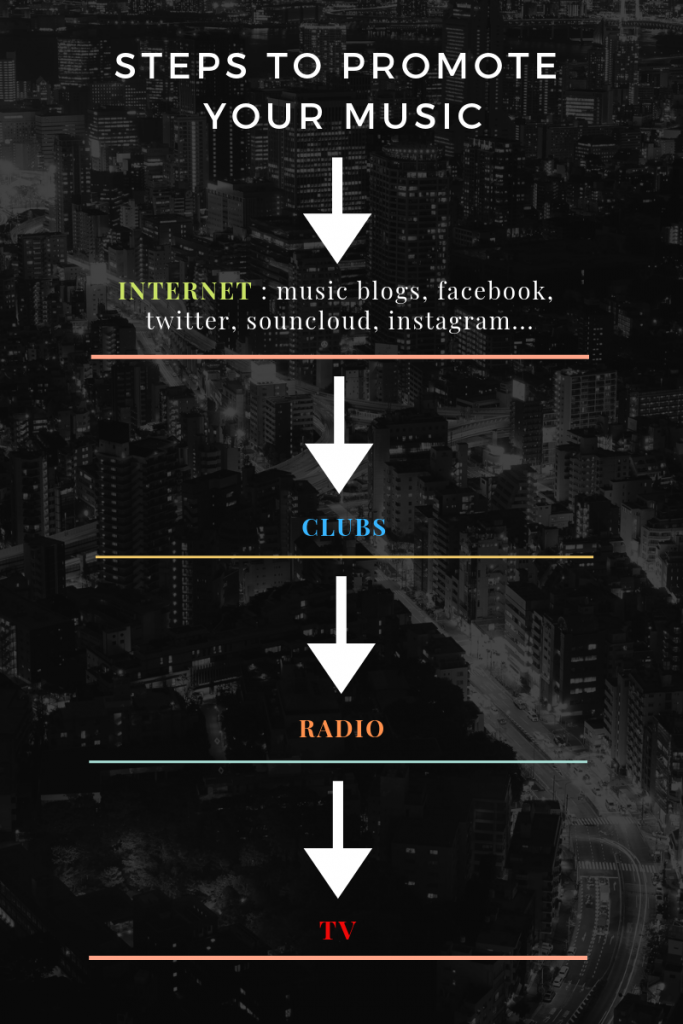Starting a record label is a serious decision. Sure, you can just say “I have a record label” now and call it a day. There’s many examples of labels that fixed themselves during their development. But if you want your label to bring you as much benefits as possible, you should consider a good plan. There are a few things you should remember:
- First of all, you need to understand that running a label is a full-time job. Obviously, it’s going to be fun, but you also need a lot of patience and hard work Don’t think that you’ll become the most important person in the industry two years after opening your label.
- A label is very draining not just emotionally or physically, but also financially. Running your own label requires a lot of money, so you really need to think whether you’ll be able to leave your job or not.
- If you want to start a label to release your own music only, you might not have as much freedom as you thought you would. You should be rather cautious when you’re contacting journalists to promote your album, because even with the best intentions, you might seem vain. This doesn’t mean you shouldn’t promote yourself at all, just be considerate about it.
Now on to the tips.
Choose your record label name AND company type
It’s very good to turn your label into a legal company from the very beginning. It makes working with finances much easier. To manage taxes, have a bank account or get sponsored, your collective should be an actual business. As well as that, when your label name is legally yours, no one else will be able to take it.
Learning what are the differences between various types of structures (LLC, Inc. and so on) could be very handy. This way you can understand what works best for you in your region. Advices might differ on the variant you choose, but there are two things everyone needs to remember:
- Your label structure should be two things: simple and stable, in case something goes wrong
- When you start a label with partners, even if they are your friends, you absolutely need to have a documented agreement. You need to work on many details, such as: the percentage of the company each of you owns, who takes responsibility for what sphere (promotion, finance, etc.) and so on.
You might state all of the details in the papers you sign for starting your label, or you may do it later with a separate contract.
Finding your style
Your label needs to be unique – find the genres, or even the particular sound you’re looking for and keep that in mind. This is harder than it sounds, because every artist is different, and not every artist that fits your idea will want to work with you. To start off, check out your local musicians – maybe you will find a gem you want to work with. Later you can check websites like SoundCloud or MySpace to find more artists looking to get signed.
You should really love what you do, so don’t rush to sign just anyone for the sake of having artists on your label. Sometimes it’s better to be patient, and this is that exact case.
Signing a contract
After you figure out your style, you’ve got to find an artist to sign. A good thing about small labels is that you can find individual solutions for all of your protégés. If you don’t know what you want to start with at all, here are some things to consider:
- Will you pay for mixing and mastering, or do you want your artists to do it themselves?
- Are you paying advances? And if not, how are you going to convince your potential protégés to stay?
- How will you divide the income?
- How many promotional copies does the musician get? And how much will they pay for any additional ones?
- How long will the contract last?
- Is it a one-release deal or will it extend on other releases too?
- Will the artist be involved in working with the finances? And what documents or reason should they provide to do so?
Distribution of the records
This is a very complicated situation to solve. Artists want to know the way their music is going to be distributed before they get to work on the record, and the distributors usually prefer to know what music you have already. You can persuade some artists to choose your label before you get the distribution sorted, but making an agreement with the distribution companies is a bit harder. Whatever the case, this is what you should always consider about distribution:
- Although this is very rare, there is a number of distributors that will sign manufacturing and distribution deals, or M&D. It means that the company will pay all of the expenses for making a physical record.
- Digital distribution is rater cheaper and easier to find than the physical one. There are lots of services on the internet that will help you put your music out on all the major music stores and streaming services like Apple Music, iTunes, Tidal, Amazon and so on. This is more reasonable than waiting for a good release to distribute it physically.
- The best physical distributor is the one that’s very careful in choosing the labels to work with. Such companies will most likely pay more attention to what you need, but in return will ask for a label with serious plans for the future.
Promoting your music
What do you need to do to make your releases sell? Right. You have to promote them.
When you’re thinking about promotion, you need to think about who is doing the promotion and where it is happening. Now both of these depend on your budget. Promotion places you should think about are clubs, radio, printed & online media and individual adverts, such as TV, internet, or printed ads.

Either you can promote your releases yourself, or you can ask a PR company for help. If you are hiring someone to do the work for you, you might have to hire a few different specialists, because most companies only focus on a specific promotion area.
However, if you are a rookie label, your possibilities might be limited by the lack of finance. In this case, you should learn a lot about promotional work yourself, and only hire a PR professional for the areas you can’t possibly cover, like getting on the radio or handling printed media.
Take promotion very seriously. You have to make sure the upcoming piece gets enough attention in the media, so take at least 2 months to promote it. Make sure everyone knows exactly when the release date is. Of course, your first release might not get all the attention you’d wanted, but it’s fine! You have time to improve for the future ones.
Prepare for the first release
Now that you have contracts, distribution and promotion figured out, you need to prepare for the actual releases. Remember that if you chose physical selling, you can’t just put your music out from the get-go – a lot of factors will impact the release date, with your artists’ wishes being among the least important ones.
First of all, you need to approve the artwork. Then you might face manufacturing delays – they happen often, so be patient. And obviously, you have to adjust with your distribution company. Your distributor needs to make sure your release doesn’t get less attention because of some major release coming out on the same date, plus they need to find a profitable time to put your music into stores.
Some general advice
- We’ve said it often, but it needs to be repeated. It is perfectly okay to make mistakes. Don’t expect yourself to be an expert from the first try – you are going to make many, many mistakes, even after you’ve gained some experience. The best thing you can do is accept that you did something wrong, and learn to do it differently next time. Not learning from your mistakes is actually even worse.
- Realize that starting a label is indeed an expensive thing. When you don’t have much funding at first, spend your money wisely – invest in things that can actually help you in the future. You will have an opportunity to buy expensive toys later.
- Don’t be afraid to ask questions about everything that confuses you. Be honest about what you don’t know or don’t understand – it’s better than lying about your skills and ruining everything in the end.
- Never lie to your artists either – they should know what you’re capable of. Tell them if something is wrong, they will most likely understand.
- Always stay true to your ideas. Trends might attract some people, but most will stay with you only if you stand for something special.
- Don’t be afraid to experiment and think outside the box. Sometimes unexpected solutions and decisions turn out to be the best ones.







